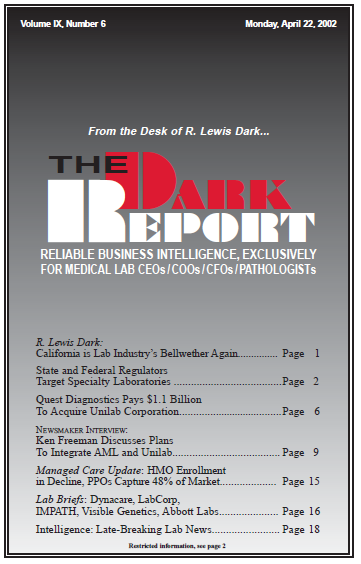CEO SUMMARY: Quest Diagnostics Incorporated is showing its muscle. The dust had hardly settled on its $500 million acquisition of American Medical Laboratories when the lab industry’s behemoth announced that it would pay $1.1 billion to buy Unilab, by far the largest lab testing company in California. Integration of the two laboratory operations is planned …
Quest Pays $1.1 Billion To Acquire Unilab Corp. Read More »
To access this post, you must purchase The Dark Report.


